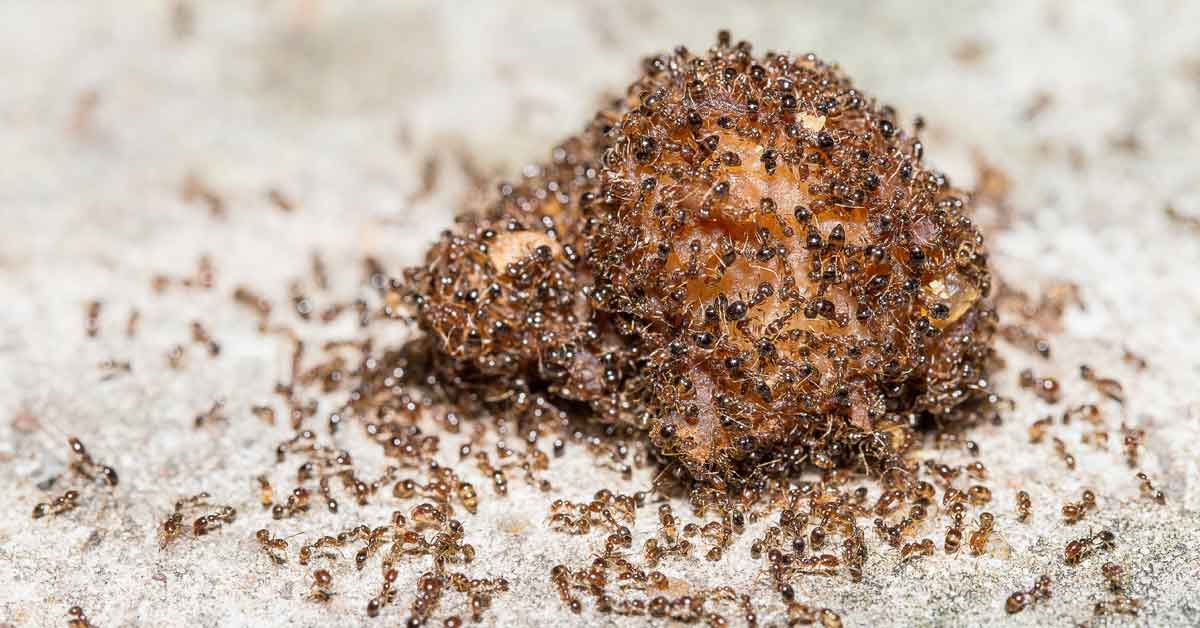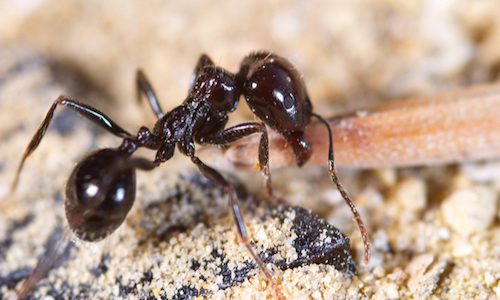Advanced Termite Control: Proven Techniques for Removing Termite Infestations
Advanced Termite Control: Proven Techniques for Removing Termite Infestations
Blog Article
Environmental Influence of Bug Control: Harmonizing Efficiency With Sustainability
The ecological influence of bug control is a critical issue that requires a fragile balance in between achieving efficiency in taking care of insects and guaranteeing sustainability of our ecosystems. From the usage of damaging chemicals that leak right into our dirt and water to the unintended repercussions on non-target types, the consequences of standard bug control methods are far-ranging.
Dangerous Chemicals in Pest Control
The use of damaging chemicals in pest control positions considerable environmental and wellness dangers that call for mindful factor to consider and reduction strategies. Chemicals, insecticides, and herbicides are generally made use of to eradicate parasites, however their extensive application can cause unexpected effects. These chemicals can contaminate dirt, water resources, and the air, impacting not only the targeted bugs yet additionally valuable pests, wildlife, and human beings.

To resolve these threats, incorporated insect management (IPM) methods are being advertised as a much more lasting alternative. IPM involves a mix of methods such as biological control, environment manipulation, and the targeted use of chemicals as a last option (ant control mathews nc). By adopting a holistic technique to pest control, we can decrease the environmental and health effects related to hazardous chemicals while effectively handling pest populations
Effect on Non-Target Types
Taking into consideration the unplanned consequences of pest control approaches, the effect on non-target varieties is an important facet that calls for thorough examination. While parasite control actions aim to target particular bugs, other microorganisms in the environment may be unintentionally affected. Non-target species, including beneficial insects, birds, animals, and also plants, can suffer direct or indirect damage from chemical applications or biological control techniques.
Pesticides can have sub-lethal or deadly effects on non-target types. For example, insecticides designed to battle a certain bug pest might hurt pollinators like bees or all-natural predators such as ladybugs. Furthermore, chemical residues can accumulate in the atmosphere, affecting non-target organisms with time. Similarly, organic control agents, if not species-specific, can position risks to unintended targets, interrupting the environmental equilibrium.
To alleviate the influence on non-target varieties, incorporated insect management (IPM) strategies that highlight an all natural strategy to pest control are recommended. These approaches prioritize making use of ecologically friendly methods, minimizing injury to valuable organisms while successfully managing pest populaces. Carrying out complete danger analyses and monitoring the results of bug control initiatives are essential actions in safeguarding non-target varieties and promoting general ecosystem health.
Soil and Water Contamination
Unintended ecological repercussions of insect control approaches prolong beyond influencing non-target species, with considerable effects for soil and water contamination. Pesticides, herbicides, and chemical fertilizers used in parasite control can seep into the dirt and pollute groundwater, positioning a threat to both terrestrial and marine ecological communities. Soil contamination can interrupt the balance of microorganisms important for vitamins and mineral cycling and plant development, resulting in lowered dirt fertility and efficiency. In addition, these chemicals can continue the atmosphere for extended durations, gathering in the dirt and potentially going into the food cycle.
Water contamination is one more important concern connected with insect control methods. To mitigate soil and water contamination from pest control activities, integrated insect administration methods that focus on sustainability and minimize chemical inputs are vital.
Air Air Pollution From Chemical Usage
Exposure to airborne chemicals throughout agricultural applications positions a significant issue for air pollution control steps. In addition, pesticide drift, where chemicals are carried by the wind to unintentional locations, can lead to the contamination of close-by ecological communities and water bodies.

Techniques for Lasting Parasite Control
In the world of agricultural techniques, applying sustainable bug control strategies is paramount for maintaining eco-friendly balance and guarding crop returns. Lasting bug control stresses the usage of eco-friendly approaches to take care of insect populations successfully while minimizing injury to non-target microorganisms and ecological communities. Integrated Insect Monitoring (IPM) is an extensively taken on technique that integrates biological, cultural, physical, and chemical control techniques to achieve lasting pest monitoring remedies.
One key technique in lasting pest control is promoting biodiversity within agroecosystems. By improving all-natural enemies of bugs, such as killers and parasitoids, farmers can reduce the demand for artificial pesticides. Plant turning and diversification are also efficient strategies to interrupt pest life cycles and develop much less positive problems for parasites to flourish. Additionally, making use of pest-resistant crop ranges and employing techniques like catch read review chopping can help minimize parasite stress without relying heavily on chemical treatments. Ultimately, by incorporating these lasting insect control approaches, farmers can achieve an equilibrium between pest administration effectiveness and environmental stewardship.
Verdict
Finally, the environmental influence of pest control approaches should be carefully taken into consideration to balance efficiency with sustainability. Unsafe chemicals made use of in insect control can result in soil and water contamination, air contamination, and injury non-target varieties - termite control services. It is essential to apply sustainable insect control approaches to lessen these negative results on the environment and promote a much healthier ecosystem for future generations
By taking on an all natural strategy to pest control, we can lessen the environmental and health and wellness effects associated with unsafe chemicals while successfully handling pest populations.

To minimize the air pollution triggered by pesticide use, it is necessary to embrace incorporated pest administration methods that prioritize the usage of non-chemical pest control techniques, such as plant turning, natural killers, and immune plant selections. Sustainable parasite control stresses the use of ecologically friendly techniques to take care of pest populaces properly while decreasing harm to non-target microorganisms and ecosystems. Integrated Bug Administration (IPM) is an extensively embraced method that incorporates biological, cultural, physical, and chemical control techniques to achieve long-lasting pest monitoring solutions.
Report this page